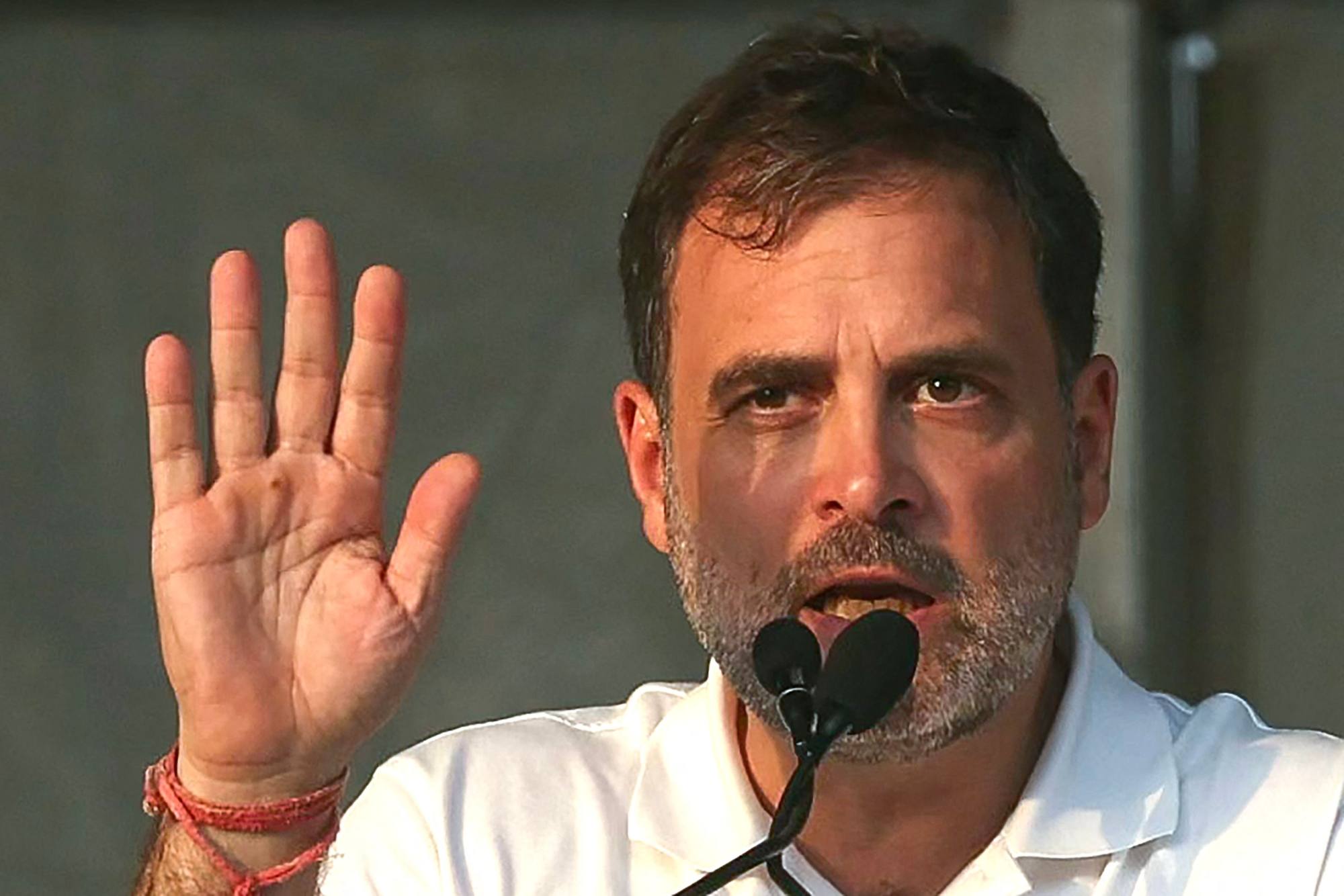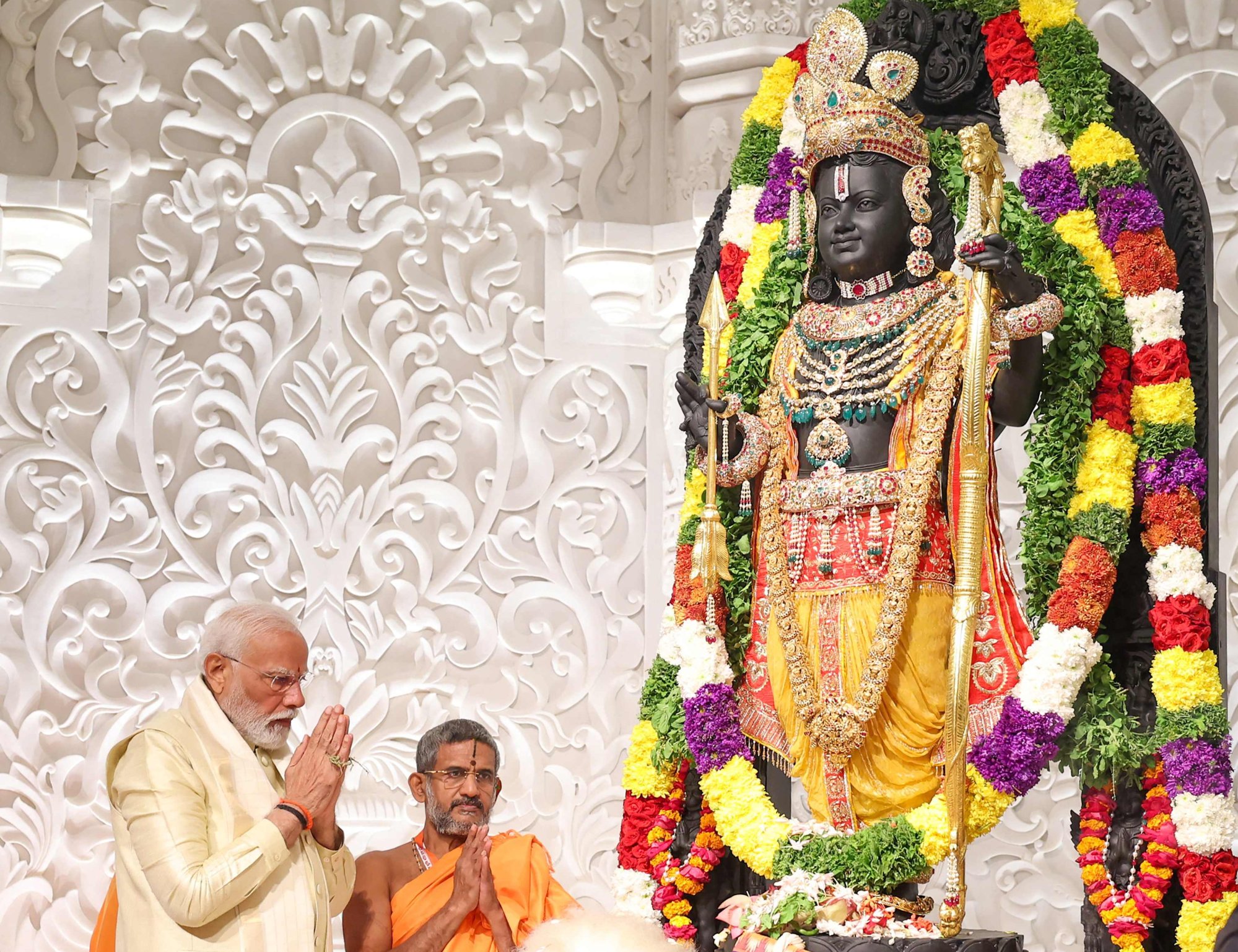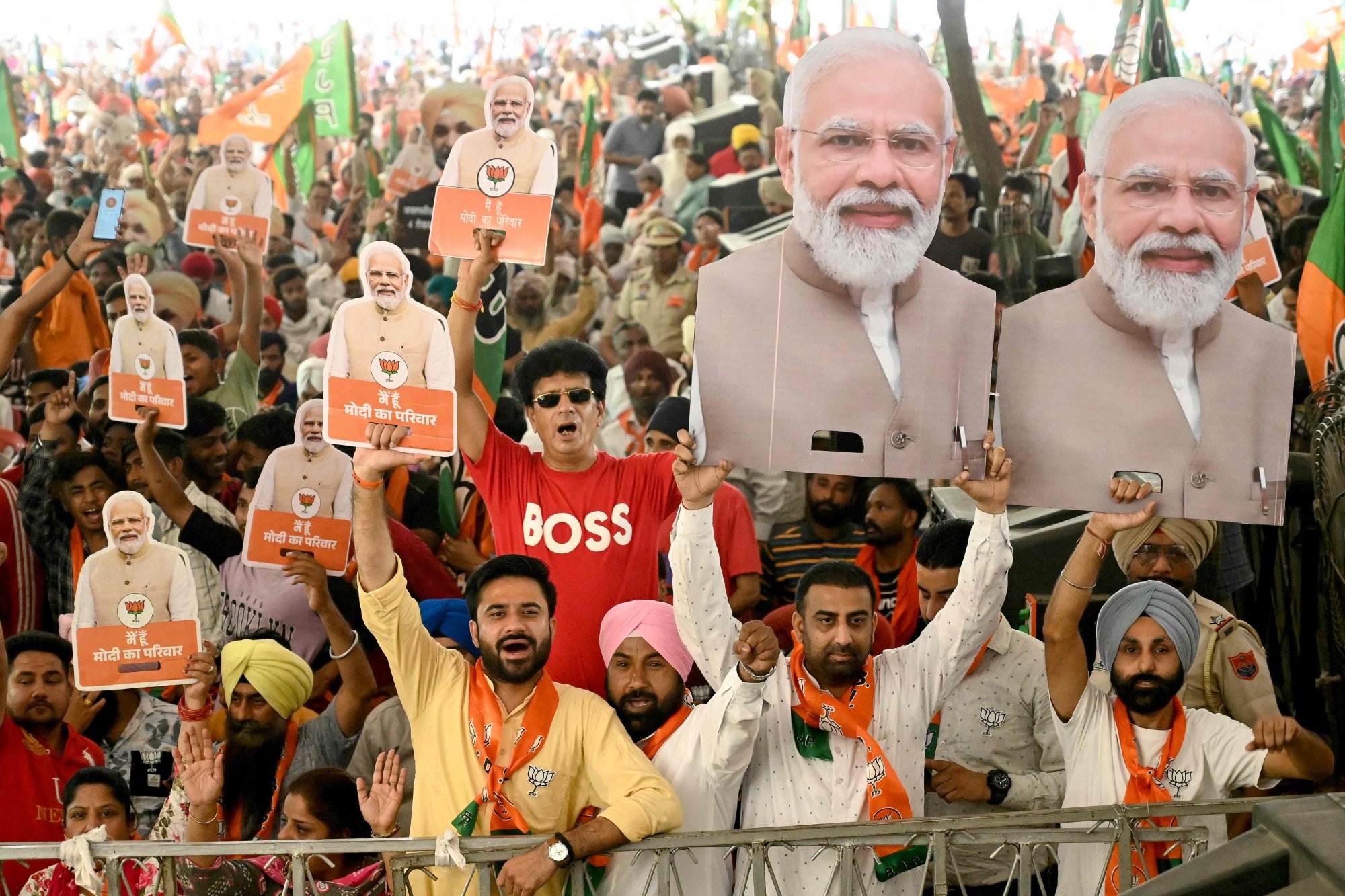His statement drew ridicule from opposition leaders and sparked memes depicting him as a God.
“To all the people of India, Narendra Modi is saying that brothers, you are all biological beings, but I am not. God has sent me from the heavens on a mission,” opposition Congress party leader Rahul Gandhi told a rally on May 23.
“Now if you meet someone on the street who tells you the same thing, what will you tell him? Brother, please forgive me, but let me do my work,” he said.

It was not the only incident that Modi or his ruling Bharatiya Janata Party had made controversial comments about spiritual matters. Party spokesman Sambit Patra said Lord Jagannath, a principal deity revered by Hindus, was Modi’s devotee, forcing the BJP leader to later apologise for his subordinate’s slip of the tongue.
Nilanjan Mukhopadhyay, author of the book Narendra Modi: The Man, The Times, said the incidents were in tandem with Modi’s “cult status” among his die-hard supporters including in the BJP, which he had encouraged.
“He has been trying to present this connection with divinity to establish the extraordinariness of Modi,” said Mukhopadhyay. While Modi had spoken about God choosing him for his political mission, the frequency of such comments by him has increased recently, according to Mukhopadhyay.
Modi’s spiritual focus was underlined by his attendance in January at the opening of a grand temple to the god Ram in Ayodhya, which Hindus believe is the deity’s birthplace.
If Modi were to win the election again, he could equal the three-term record as prime minister of Jawaharlal Nehru, the country’s leader from 1947 to 1964.
While a poll in May put Modi way ahead in the lead with a 74 per cent approval rating, his aura of invincibility may be waning, analysts say.
Opposition parties say they have become more confident of winning voters with its welfare and job-creation measures as the general election progresses. They have warned that another Modi term would undermine India’s secular and democratic traditions.

Cult-like status?
Some analysts suggest Modi’s recent remarks reflect his desperation to woo the country’s Hindu majority, sensing the election is not going as well as he has anticipated.
“This is a kind of last-ditch effort because many other issues and narratives have not worked [for Modi]. This is like an appeal, indirectly linking to issues of religion and the Ram Temple, which was supposed to have been the centrepiece of his electoral campaign,” said Ajay Darshan Behara, an international studies professor at Jamia Millia Islamia University.
“It also aligns with his comments where he speaks of other political leaders as lower beings or people who don’t have a higher calling.”
Nonetheless, Modi’s chances of securing another resounding mandate are high as none of his political rivals could match his strong appeal among voters, analysts say.
Modi has often referred to his rival Rahul Gandhi as shehzada, or a prince, alluding to him being a scion of the Nehru-Gandhi dynasty that has ruled over India for many years since the country’s independence in 1947.

While many BJP leaders revere Modi like a deity, it is still surprising “to hear it coming from Modi’s mouth”, according to Behara.
“He shows himself as someone who has a warped understanding of democracy,” he said. “As citizens, we don’t elect a god but other citizens to govern us.”
Modi’s supporters are unfazed by the criticisms and highlighted India’s economic achievements in the last decade under his rule including infrastructure developments such as roads and airports and the country’s attraction among overseas investors.
“With the spirit of Lord Ram as his guiding light, Modi’s leadership navigates India towards a brighter tomorrow, rooted in tradition and propelled by innovation,” said Srinvisan Balakrishnan, national president of Bharat Yuva Sevak Sangh.
“Though he is a god-like figure, he uses advanced technology in every vertical of the government. He considers India as his family. Nobody is left out in his vision.”

